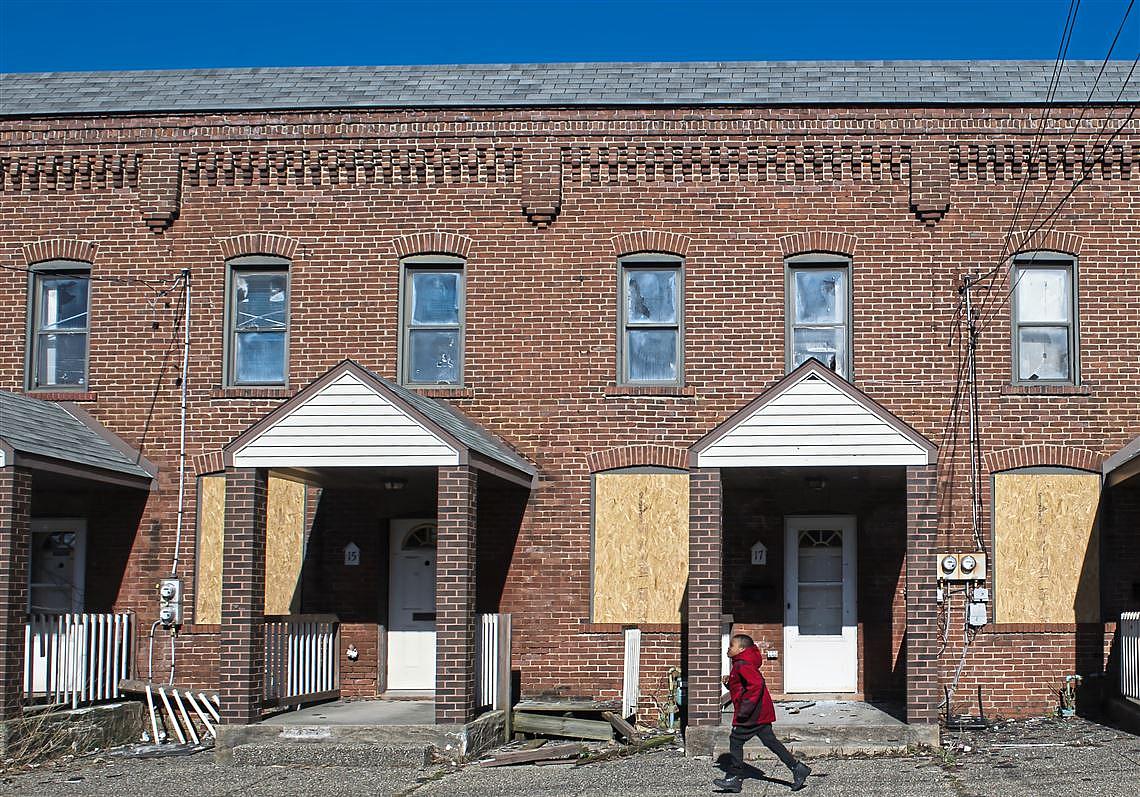Study: An increasing number of Pa. kids living in high-poverty areas
This story was produced as part of a larger project led by Rich Lord, a participant in the USC Center for Health Journalism's 2018 Data Fellowship.
Other stories in this series include:
Charges lodged in North Braddock arrest
Growing up through the cracks: The children at the center of North Braddock's storm
Where fighting poverty is a priority
Pittsburgh's neighborhood boosters face changing landscape
Current and former Rankin residents remember the past, envision the future
Rankin, Pennsylvania: Fighting 'the depressed mindset'
Growing Up Through the Cracks: Mapping Inequality in Allegheny County
A mother moves from McKeesport to Glassport to try to better her family’s chances
Growing up through the cracks: North Braddock: Treasures Amid Ruins
Saltlick: “They don’t know they’re poor.”
Pa. officials reverse course on local family support center funding
What it’s like to work in child care, raise your kids and just get by in the Mon Valley

Stephanie Strasburg/Post-Gazette
By Kate Giammarise
The share of children in Pennsylvania living in high-poverty neighborhoods has been steadily growing, according to new data released Monday by The Annie E. Casey Foundation as part of its annual “Kids Count” state-by-state review.
Overall, the report ranked the state 17th in child well-being by various measures of poverty, health, education and family and community metrics.
According to its score, Pennsylvania ranks:
● 9th in education, evaluating for early education, reading and math scores, and on-time graduation;
● 12th in health, by how many kids lack health insurance, child death rates, and other health measures. In Pennsylvania, 4% of kids are uninsured, a rate that has declined since 2010, which advocates attribute to the implementation of the Affordable Care Act;
● 20th in economic well-being, using data related to poverty, employment, teen employment, and housing costs;
● 25th in family and community measures, which looks at single-parent families and the number of children living in high-poverty areas, among other metrics.
The report says 323,000 kids — 12% of Pennsylvania children — live in high poverty areas.
The Pittsburgh Post-Gazette is examining communities in the region that have high concentrations of child poverty and how it hurts kids, families and communities, including Rankin, North Braddock, Wilmerding and Duquesne in Allegheny County and Saltlick Township in Fayette County.
According to the foundation, since the first data book was released in 1990, the share of children living in high-poverty areas — census tracts of 30% poverty or greater — worsened by 71% in Pennsylvania.
“Residents of these neighborhoods contend with poorer health, higher rates of crime and violence, poor-performing schools due to inadequate funding and limited access to support networks and job opportunities. They also experience higher levels of financial instability. These barriers make it much harder for families to move up the economic ladder,” the foundation's report noted.
The report, now in its 30th edition, bills itself as “the most comprehensive annual report on child well-being in the United States.”
“If we want children to be successful, we must provide access to high-quality child care and pre-K programs to build a solid foundation for learning, and adequately invest in public education,” said Kari King, president and CEO of Pennsylvania Partnerships for Children, the state grantee for the foundation.
Ms. King also touted the importance of full participation in the 2020 Census to make sure the state receives its fair share of federal funds for health and human service programs that aid children, such as Medicaid and the Children’s Health Insurance Program.
Kate Giammarise: kgiammarise@post-gazette.com or 412-263-3909.
[This article was originally published by the Post-Gazette.]

